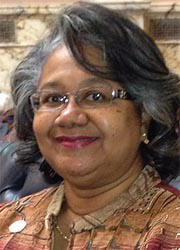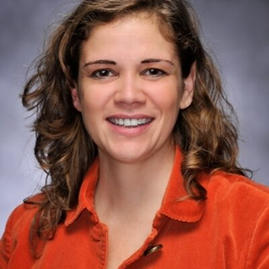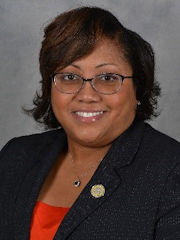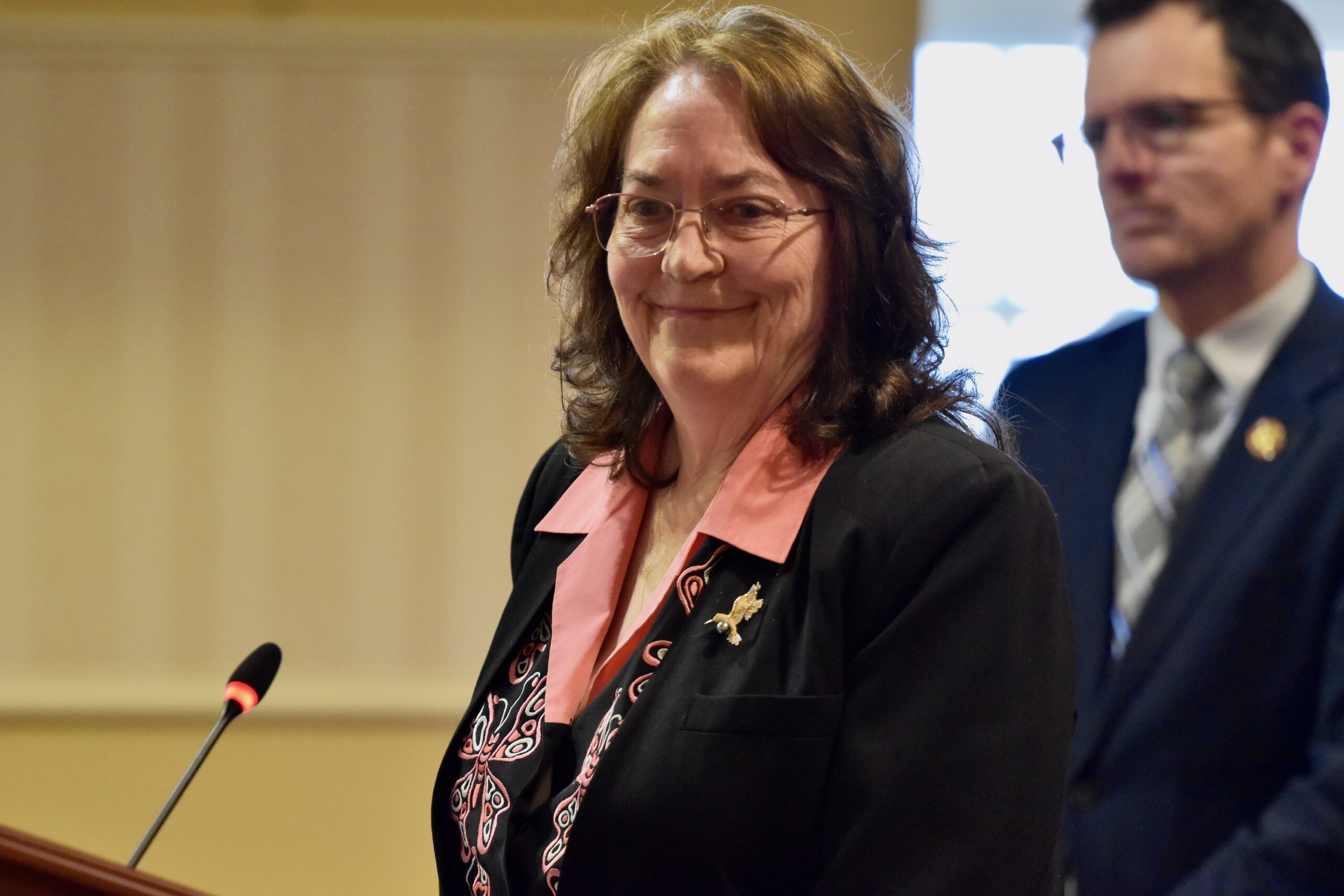Ex-Black Caucus Chief on Anderson Accusers: Let’s Not Forget Emmett Till
As a legislative ethics panel continues to investigate whether Del. Curtis S. Anderson (D-Baltimore City) sexually abused women, and some organizations press the General Assembly for a swift resolution, the former president of the Legislative Black Caucus this week suggested the Anderson case has parallels to Emmett Till’s 1955 lynching and the five young African-American men improperly accused of raping a jogger in New York’s Central Park 29 years ago.
The remarks of Del. Cheryl D. Glenn (D-Baltimore City) at an emotional meeting of the Baltimore City Democratic Central Committee Wednesday night created a firestorm among some of her legislative colleagues and other political leaders – several of whom were gathered in Ocean City Thursday for the Maryland Association of Counties convention.
According to two videos of Wednesday’s central committee meeting posted on Facebook, Glenn specifically called out “two of the Caucasian legislators…from Montgomery County,” including state Sen. Cheryl C. Kagan (D), for allegedly leveling unsubstantiated charges against Anderson.

Del. Cheryl Glenn
Sources said Montgomery County lawmakers are not among Anderson’s principal accusers. Kagan during this year’s General Assembly session accused a lobbyist of inappropriately touching her at a social event.
As certain community and women’s groups press for the Joint Committee on Legislative Ethics to render judgment on Anderson before a late August deadline for candidates to remove themselves from the general election ballot – or at least to provide a status update on the panel’s investigation – leaders of the Legislative Black Caucus have decried any attempt to expedite the ethics process.
The ethics committee met behind closed doors two weeks ago and is scheduled to do so again on Wednesday, and while the subject matter of the meetings has not been announced, it is likely that the Anderson case is the prime topic.
Though his chief of staff, Alexandra Hughes, House Speaker Michael E. Busch (D-Anne Arundel) declined to comment Thursday.
Black caucus leaders have repeatedly pushed back against any attempt to speed the legislature’s ethics investigation. A Baltimore Sun article published in mid-June – just two weeks before the Democratic primary – reported that several women had accused Anderson of sexual assault or harassment over a period of several years. Anderson, the longtime chairman of the Baltimore City House delegation, denied the charges, and wound up getting enough primary votes in the Northeast Baltimore 43rd legislative district to advance to the general election.
Anderson’s African-American colleagues have also criticized the Maryland Democratic Party for announcing earlier this summer that it would not include Anderson in any party mailings or voter turnout efforts. The black lawmakers said the party, despite its zero-tolerance policy on sexual misconduct, was acting too hastily because the ethics committee had not rendered any judgment against Anderson. They have also pointed out that whether Anderson is removed from office at some point or leaves voluntarily, and whatever the timetable, the process for replacing him – a vote of the local Democratic central committee – will be the same.
But Glenn’s comments about the Anderson situation Wednesday night were the most heated yet.
They came during a central committee discussion about whether to send a letter to the legislative ethics committee seeking an update on the Anderson probe. As she has in other public meetings, Glenn began by suggesting that the Anderson probe is moving more quickly than internal investigations of white lawmakers through the years.
“What we see clearly is that Del. Anderson is being cherry-picked to be treated differently,” Glenn said. She went on to call the ethics committee’s work “a sacred process, and it’s not unusual to see the ethics committee take a lot of time on these kinds of charges.”
Glenn continued: “If you don’t treat everybody the same, what you do is open yourself up for biases, corruption, collusion, and the whole nine yards. There is a process in place.”

Odette Ramos
Glenn then suggested that Odette Ramos, a community and Democratic activist in the 43rd District who has also been active in the group Baltimore Women United, wants Anderson removed from office because she is eager to replace him, and called Ramos’ posture “unconscionable.” (In an interview Thursday night, Ramos said she did not mind the attacks against her but was “offended” that Glenn appeared to be ignoring the concerns of multiple women.)
“We’re not assigning guilt or innocence,” Glenn continued. “I’m not standing up here to defend Curt Anderson. I’m standing up here to defend a process.”
Then, without naming her, Glenn referenced Kagan, who during this year’s General Assembly session accused lobbyist Gilbert J. Genn of inappropriately sliding his hand over her backside at a social function in an Annapolis bar. Glenn then also brought up a second unnamed lawmaker.
“Two of the Caucasian legislators who have piled on to this, and who have made accusations against Del. Anderson, I will tell you, they are from Montgomery County,” Glenn said. “One brought charges against a lobbyist last session, and everybody started ostracizing this lobbyist. He was spurned. He was treated like dirt until thank God…he was totally exonerated [by a videotape of the incident]. She lied. She lied. And unfortunately, let’s take this back as a party, let’s not forget Emmett Till, let’s not forget the Central Park Five. Because in public opinion, they were all guilty.”
Later, Glenn said “the two Caucasians from Montgomery County…as far as I’m concerned, they have no credibility.”
On the video of the central committee meeting, some members of the audience applauded Glenn’s remarks. But some were shocked.
“Personally, I was really offended by several things Del. Glenn said – mainly blaming the women who filed the complaints,” Charly Carter, co-chairwoman of the group Baltimore Women United, which has been showing up at Democratic Party events urging a timely investigation into the Anderson accusations, said in an interview. Carter, who is black, later added, “Curt Anderson is no Emmett Till, and we do ourselves a disservice to use that kind of hyperbole to make the issue about race.”
Carter said members of Baltimore Women United were at the central committee meeting and have been pressuring Democratic leaders to address the Anderson case as quickly as possible, because they want to make sure the accusations do not get swept under the rug.
“If we did not keep this issue front and center, I don’t think the legislature would act at all,” she said.
After some back and forth about what the central committee would do, Angela Winder, a committee member from the 43rd District, said she would personally write to the legislative ethics panel requesting a status report on its Anderson investigation.

Del. Sheree Sample-Hughes
Word of Glenn’s remarks quickly filtered to her legislative colleagues. The General Assembly has spent the past two years developing policies to mitigate and investigate incidents of sexual harassment on the legislative campus.
In an interview Thursday, Kagan said Del. Darryl M. Barnes (D-Prince George’s), who replaced Glenn as president of the Legislative Black Caucus earlier this year, apologized to her when they ran into each other at the MACo conference in Ocean City. Kagan said the grainy videotape of her encounter with Genn earlier this year proved her contention that he had brushed his hand against her backside, and asserted she wasn’t sure why Glenn appeared to be siding with Genn.
“I am shocked and disappointed to hear that my friend and colleague would accuse me of lying about my #MeToo complaint when the subsequent videotape revealed that lobbyist Gil Genn lied about touching me inappropriately,” Kagan said. “Sexual harassment incidents are emotional and challenging enough without attempting to bias a confidential new process that seeks to find justice as we help create a better culture in Annapolis.”
Del. Ariana B. Kelly (D-Montgomery), who served as head of the Women’s Caucus during the negotiations over the internal sexual harassment policies, declined to comment Thursday.
Del. Sheree Sample-Hughes (D-Wicomico), who took over leadership of the women’s caucus after this year’s General Assembly session and also sits on the executive committee of the black caucus, said Thursday that she was unaware of Glenn’s latest remarks. She said she has been reaching out especially to African-American women in the legislature over the past several weeks to discuss the delicate balance between supporting their women colleagues and black men.
“I’ve always been a process person,” she said.
Barnes, the leader of the black caucus, said he is urging everyone involved to “sit back and let the process take its course.”
“What I don’t want is to cause any dissension within the Democratic Party,” he said. “I don’t want things to get out of control.”



 Creative Commons Attribution
Creative Commons Attribution